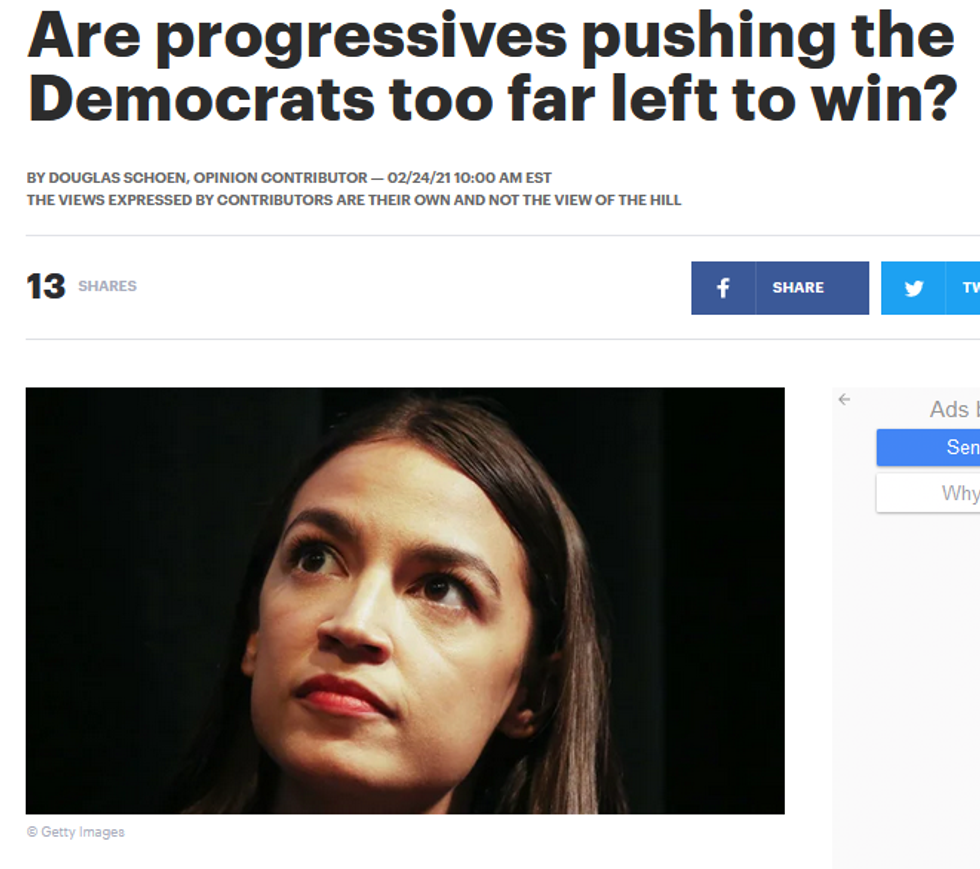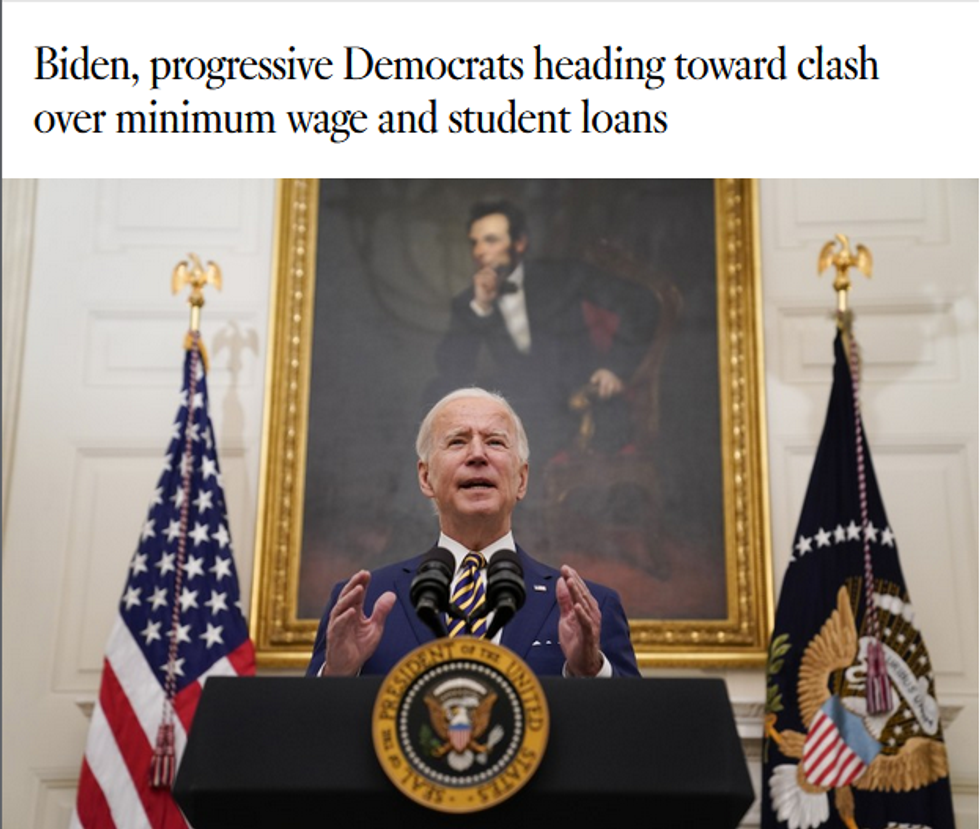As Democrats push to include a $15 federal minimum wage in the Covid stimulus package, many media reports have been giving the false impression that it's an idea far outside the mainstream.

CNN (2/21/21) labeled the $15 minimum wage a "controversial measure." The Hill(2/18/21) wrote, "The minimum wage increase is one of the most divisive parts of President Biden's $1.9 trillion Covid relief package."
At the New York Times (2/21/21), Democratic Sen. Joe Manchin's opposition to including the wage measure prompted this analysis:
Mr. Manchin's position is also bolstered by a political reality that places moderate voters at the forefront--a fact that Mr. Biden's White House is keenly aware of. For Democrats to maintain their House majority in the midterm elections next year, they must hold seats in Republican-drawn districts that are often populated by moderate suburban voters. In the Senate, where Democrats are seeking to expand their razor-thin control of the chamber in 2022, they must secure tough statewide victories in places like North Carolina, Ohio and Pennsylvania.
But however "moderate" such voters might be, they're likely to support the measure. The latest polling (Quinnipiac, 1/28-2/1/21) finds 61% of the public backs a $15 minimum wage, with only 36% opposed. A 2019 Pew poll that broke support down by party and ideology found that even among Democrats (and independents who lean Democratic) who identify as moderate or conservative, a whopping 82% favor the wage hike, and that 59% of Republicans and Republican leaners who identify as moderate or liberal back it as well. On Election Day in Florida, where Trump won by 3 percentage points, voters also backed a $15 minimum wage ballot initiative by nearly 22 percentage points--which clearly undermines Manchin's position rather than bolstering it.

Yet terms like "moderate" (and similar journo favorite "pragmatic") pepper reporting about the minimum wage hike to describe those who oppose it on both sides of the aisle. The LA Times (2/17/21), describing Biden "pumping the brakes" on keeping the minimum wage hike in the relief bill, labeled him a "pragmatist," and explained that "some moderate Democratic senators have expressed concern about the wage hike." At the New York Daily News (1/30/21), "pro-business GOP moderates oppose the hike."
Yet for all the professed concern, $15 per hour wouldn't even be a living wage in many parts of the country, as a CNBCreport (2/21/21) pointed out. A study by Dean Baker (CEPR, 1/21/20) noted that if the minimum wage had kept pace with gains in productivity--as it did from 1938 through 1968--it would today not be $15 an hour, but $24. In other words, it's a policy that's not just popular, it's also hardly extreme.
In corporate media, it seems, the minority view that opposes a living wage can also be the "moderate" one--so long as it's "pragmatically" courting business interests.


